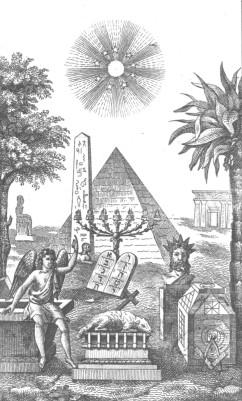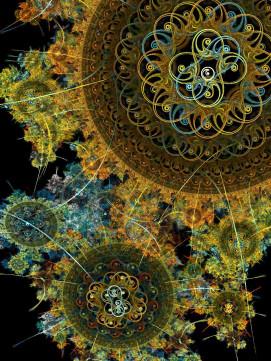I have an incurable, fatal disease: my doctors advise me to expect to live another 30-70 months. I’m not afraid of dying and in examining my life the only thing that really bothers me is the state of my spiritual life. While I was born and raised Catholic, I left organized religion as my mind matured and my path to access spirituality became intimate times with my lovers. I haven’t experienced that connection with something greater than ourselves since my wife left me on the mountaintop 10 years ago. Regular, long sessions with professionals have immeasurably improved and enriched my life but don’t reach that level. Tantra specialists offer a kind of enhanced FBSM but none seem to seek that connection to the infinite. Meditation, yoga, chanting, all are relaxing and enjoyable, but just don’t get me to that higher plane. Small doses of some recreational drugs have been useful in the past, but only in the context of the intimacy that comes with great sex. It’s my one and only spiritual life and it’s not what it ought to be. I’m not sure how to fix it, and don’t want to find myself on my deathbed with this deficit.
 I’ve been mulling over how to best answer your question, and I don’t mind telling you that I’m not sure I can give you a good answer. The problem is that spirituality is so damned hard to pin down and define; religions have been trying for at least 5000 years and probably longer, and yet they all disagree on what exactly it is. Even the words we use to describe the spiritual dimension are maddeningly vague; we speak of “the ineffable”, “the supernatural”, “the unknown”, “the beyond” and the like. Since you were raised Catholic you may remember what the religious phenomena associated with the life of Jesus are called (in the context of praying the rosary): mysteries. And that term predates Catholicism; the “mystery religions” were a group of cults that flourished in the time roughly between the Golden Age of Greece and the fall of Rome, a time when the old functions of religion (social control and explanation of natural phenomena) were being replaced by newer institutions (non-religious legal codes and science). Classical civilization produced societies far more stable than any which had gone before, and the privileged classes were secure enough in their physical existence that they began to have the luxury of asking questions like, “Is this all there is?” and “What is the meaning of life?”
I’ve been mulling over how to best answer your question, and I don’t mind telling you that I’m not sure I can give you a good answer. The problem is that spirituality is so damned hard to pin down and define; religions have been trying for at least 5000 years and probably longer, and yet they all disagree on what exactly it is. Even the words we use to describe the spiritual dimension are maddeningly vague; we speak of “the ineffable”, “the supernatural”, “the unknown”, “the beyond” and the like. Since you were raised Catholic you may remember what the religious phenomena associated with the life of Jesus are called (in the context of praying the rosary): mysteries. And that term predates Catholicism; the “mystery religions” were a group of cults that flourished in the time roughly between the Golden Age of Greece and the fall of Rome, a time when the old functions of religion (social control and explanation of natural phenomena) were being replaced by newer institutions (non-religious legal codes and science). Classical civilization produced societies far more stable than any which had gone before, and the privileged classes were secure enough in their physical existence that they began to have the luxury of asking questions like, “Is this all there is?” and “What is the meaning of life?”
The mystery religions, more mystical outgrowths of traditional pagan religions, promised to answer these questions. Hinduism grew out of the old Vedic religion and Buddhism grew from Hinduism; in the West, cults arose around the Egyptian Isis, the Anatolian Cybele, the Persian Mithra and many others. All of these religions had various circles of initiation which the devout had to work to rise through; Christianity’s innovation (which caused it to rapidly supplant all others in Europe) was that there was only one circle, and every convert had access to all the mysteries right away. We all know them; transsubstantiation, the Trinity, the virgin birth, etc, logical impossibilities that could not be explained rationally and were supposed to be meditated upon in order to obtain salvation. The fall of Rome plunged Europe back into a precarious state again, and religion once again assumed its old roles until the Age of Reason gave the privileged classes back the freedom of not having to worry about where their next meal was coming from. The modern industrial age took that a step further, giving virtually everyone in developed nations that freedom to wonder, “What else is there?”, and of course the result has been the return of old mystery religions (such as evangelical Christianity) and the creation of new ones (such as Mormonism and Scientology), each with its mysteries, circles of initiation, transcendent experiences (such as speaking in tongues), etc. They all promise to answer The Question, and of course none of them do; oh, they provide the devout with explanations sufficient for many of their adherents, but if any of them could really provide a better answer to the ultimate question than “forty-two”, everyone in the world would’ve converted to that religion long ago and the Millennium would’ve arrived.
By now you may be beginning to get the idea that I don’t actually have an answer to your question, and on one level you’d be right; the truth, however, is that no priest, yogi, guru, prophet or adept in the world does either. And the reason they don’t is that there is no one answer; the point of The Great Question is not to be answered, but to be asked in the first place. In other words, the seeking of truth is the point in itself; it’s a limit approaching infinity, but as you and I both know any point along that journey is equally far from its infinitely-distant end. The observable universe is an infinitesimal particle of all that there is; it’s elephants all the way down and all the way up, and all the way in every direction you can conceive of and an infinity of directions that you can’t, except for “elephants” read “math”. It is, by definition, utterly incomprehensible to finite beings such as ourselves; the only meaning in existence is the meaning we as conscious beings give it. So, while sex, drugs, religion, music and other temporal lobe phenomena may give one a sense or feeling of connection to the Divine, the truth is that we’re always connected; we’re just not always aware of it, because if we were we’d be unable to carry out the functions of mundane existence, and would instead merely lie physically inert while contemplating higher dimensions.
it’s elephants all the way down and all the way up, and all the way in every direction you can conceive of and an infinity of directions that you can’t, except for “elephants” read “math”. It is, by definition, utterly incomprehensible to finite beings such as ourselves; the only meaning in existence is the meaning we as conscious beings give it. So, while sex, drugs, religion, music and other temporal lobe phenomena may give one a sense or feeling of connection to the Divine, the truth is that we’re always connected; we’re just not always aware of it, because if we were we’d be unable to carry out the functions of mundane existence, and would instead merely lie physically inert while contemplating higher dimensions.
I said at the beginning of the previous paragraph that the point of the question is the process of answering it, and that’s not just inscrutable bullshit intended to cover the fact that I have no idea what I’m talking about; I meant it exactly as stated. Imagine yourself a passenger in a vehicle, traveling a road or railway around a majestic mountain; as the vehicle moves, you need to change your position within it to keep looking at the mountain. And life is like that, too. In your youth, sex provided the proper angle to see the mountain, but now it no longer does; you’re still looking out of the same window, and though you’ve tried others none of them have yet given you that which you seek. Perhaps the answer is larger doses of recreational drugs, or trying others you haven’t yet tried; perhaps you should try doing so in a ritualized setting, like a peyote or ayahuasca journey. I myself have achieved remarkable results with edible cannabis, listening to instrumental music. Perhaps you might try visiting sacred places, or exploring your own psychosexual landscape through kink, painting or writing. And here’s the good news: you can’t get this wrong. You needn’t worry about a deficit; I can’t promise you won’t feel a sense of disappointment or regret on your deathbed, because we all leave this world in the same way we enter it: in blood and pain, wholly ignorant of what comes next. But I can assure you that on a spiritual level, no one seeking as earnestly as you are can be considered to have any kind of spiritual deficit. The point of the question is to be asked, and you’re certainly asking. The point of the journey is the journey itself. And when the end of your biological life comes, and you move on to a different plane of existence, you will be able to do so knowing that you succeeded with flying colors in your mission on this one: to never cease asking questions and searching diligently for an ultimate answer neither you nor I nor any other sentient being can ever find.
(Have a question of your own? Please consult this page to see if I’ve answered it in a previous column, and if not just click here to ask me via email.)
